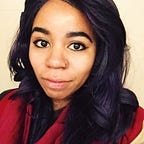The Bigger Elephant in the Room
The Golden Globes took on sexual harassment in entertainment, but failed to face another problem looming over the industry.
During press for the Golden Globes, host Seth Meyers said that Hollywood sex scandals would be “the elephant in the room.” Then during the show broadcast last night, he addressed “the elephant not in the room,” A.K.A. Harvey Weinstein, concluding with a biting joke suggesting people will boo him during his in memorium.
Maybe I’m going to hell, but I thought it was pretty damn funny.
The night was unfortunately nothing special when it comes to award shows. Yes, women donned black dresses and suits and men wore “Time’s Up” pins, but the awards were, for the most part, disappointing. The speeches were only slightly more inspired than usual, with the female winners and presenters talking about how important it is that we’re addressing these issues (shoutout to Natalie Portman’s shade) and the men not saying a damn thing.
Then Oprah won the Cecil B. Demille Award and blew our collective minds. And she opened with what was to me most standout statement of the night:
In 1964, I was a little girl sitting on the linoleum floor of my mother’s house in Milwaukee watching Anne Bancroft present the Oscar for best actor at the 36th Academy Awards. She opened the envelope and said five words that literally made history: “The winner is Sidney Poitier.” Up to the stage came the most elegant man I had ever seen. I remember his tie was white, and of course his skin was black, and I had never seen a black man being celebrated like that. I tried many, many times to explain what a moment like that means to a little girl, a kid watching from the cheap seats as my mom came through the door bone tired from cleaning other people’s houses. But all I can do is quote and say that the explanation in Sidney’s performance in “Lilies of the Field”: “Amen, amen, amen, amen.”
I’ve not been quiet about my own issues with the #MeToo movement, particularly the notion that the onus lies with the survivors of sexual harassment and assault rather than the perpetrators. However, there’s another problem I don’t talk about much, particularly with my white female friends. It’s an issue I have with mainstream feminism in general, and that’s the marginalization and erasure women of color. And of course, when women are targeted, the brunt of it comes down on black women.
There was a phenomenal piece in The New York Times last month called “Russell Simmons, R. Kelly, and Why Black Women Can’t Say #MeToo.” The author, Shanita Hubbard, discusses the intersection between racism and sexism. She explains why many black women feel conflicted calling black men out for sexual misconduct when black men are victimized by society and law enforcement on a daily basis. And she evokes the sense of heartbreak black women feel when “your community fights for those same people who terrorize you.” The message being sent from within the black community is, in turn, no different than that of our white oppressors: You are insignificant, you are disposable, you don’t matter.
Sexism is a huge problem in the black community, just like it is in every other community in this country. But racism is still rampant today as well, with many Americans feeling more empowered now to be bigoted than in recent memory. And to ignore racism in the entertainment industry is to ignore centuries of brutal oppression. It’s an outrage that Greta Gerwig’s “Lady Bird” was snubbed for best director and best screenplay, but it’s also an outrage that Jordan Peele’s “Get Out” was snubbed for those same categories. And it’s both familiar and disturbing to me that no one seems to be talking about Dee Rees, the phenomenal black/queer/female director behind “Mudbound.” Or that Mellissa McCarthy got a nod for her absolutely hilarious breakout role in “Bridesmaids” while Tiffany Haddish remains empty handed for her comparable part in “Girls Trip.” On the other hand, how do I root for Jordan Peele when he contributes to institutionalized sexism and the silence around it? “Get Out” is a masterpiece, telling a viscerally real and fantastically absurd story of racism in liberal America, but it’s to be said that I have yet to hear Peele advocate for women — particularly black women — in Hollywood at all. And it cannot be ignored that one of the biggest winners of the night, Martin McDonagh’s “Three Billboards Outside Ebbing, Missouri,” has drawn loud criticism from black audiences for problems with its portrayal of racism and tokenism toward a black female character.
Yes, I obviously want to see women excel and break free from the shackles of sexual oppression. But I also yearn to see white women stand up for Black Lives Matter and speak up in favor of black female empowerment. In the utopia where women are truly equal to men in Hollywood and beyond, who’s to say these nice white women won’t continue to tell me my hair is ugly, or my nose is too wide, or I’m uneducated? While so many women see last night as a victory, I see it as a cruel reminder of my place in the industry and in the world. And once again, I find myself at a crossroads, forced to ask myself what I am today: am I black, or am I a woman?
Unfortunately, we still live in a society in which it’s not yet possible to be both.
